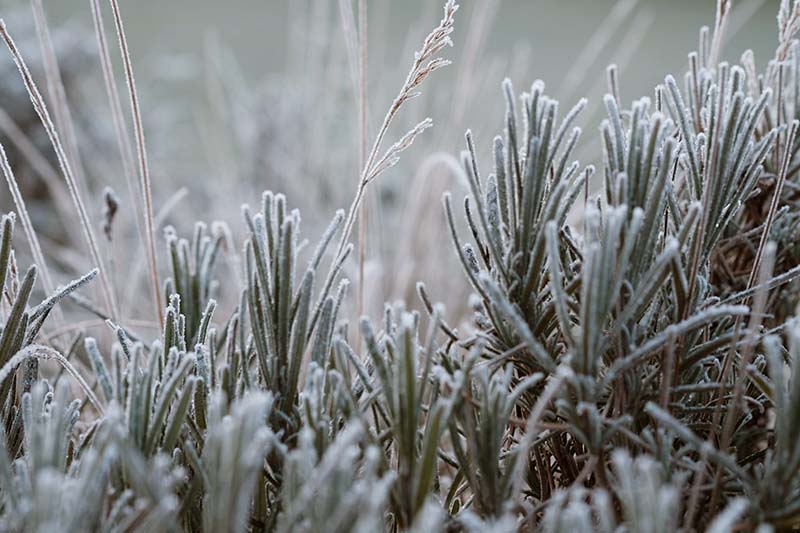Overwintering Herbs

Protect Perennial Herbs
Herbs can be annuals, biennials or perennials. Perennial herbs, such as chives, lavender, oregano, thyme, mint and tarragon overwinter well in the ground. Here are some steps you can take to prepare your perennial herbs for winter.
Don’t fertilize your herb garden after August. Fertilizing herbs late in the season will encourage tender new growth that may not survive the winter. Continue to water your plants throughout late summer and fall. Drought-stressed plants are more susceptible to cold weather damage. It may also be helpful to add a protective layer of mulch or straw when overwintering herbs to give them some added insulation.
It is important to remember not to harvest your herbs too hard before winter. Leaving enough growth to sustain your plant through the cold winter months is important, and allows the plant a much better chance of survival. This is not to say you can’t harvest your herbs later in the season. Just remember to leave enough growth so they can survive.
Bring Herbs Indoors
You can enjoy tender perennial herbs such as rosemary, and biennial herbs such as parsley, all winter long by potting them up and bringing them indoors.
Gently dig up the varieties you’d like to bring inside, making sure to get most of the root system. Transplant them into containers and water them well. Then leave them outdoors for a few weeks in a shaded area to recover from being repotted. Make sure to do this in plenty of time so you can bring them indoors before there are any hard frosts. Place them in a sunny window and you should be able to harvest fresh herbs during the winter! You can also bring hardy herbs inside for the winter, not for their protection, but so you can use them in cooking all year!
Overwintering herbs is not hard. It just requires knowing which herbs can survive in your region and which ones are better brought inside.